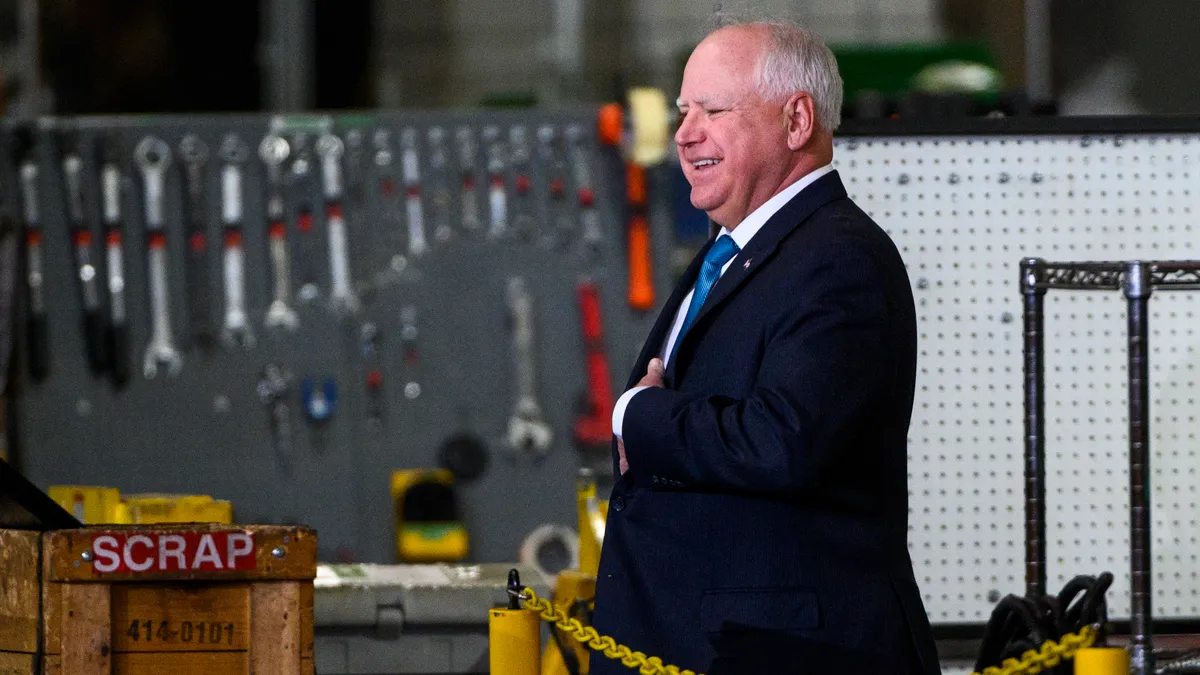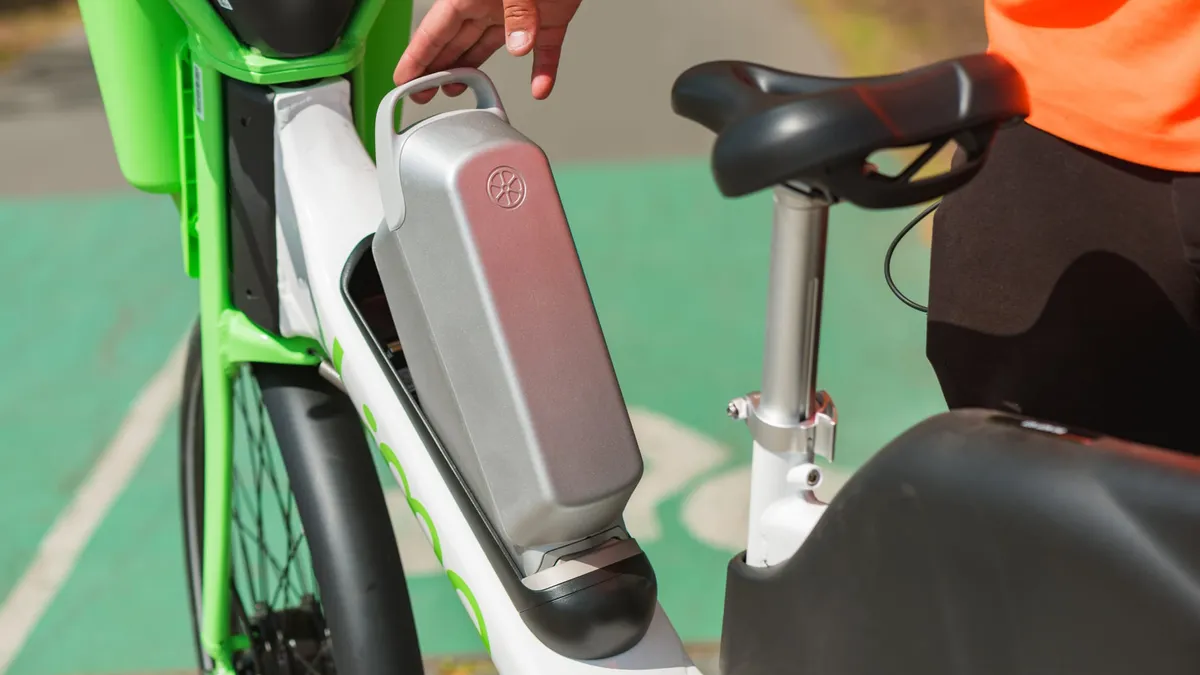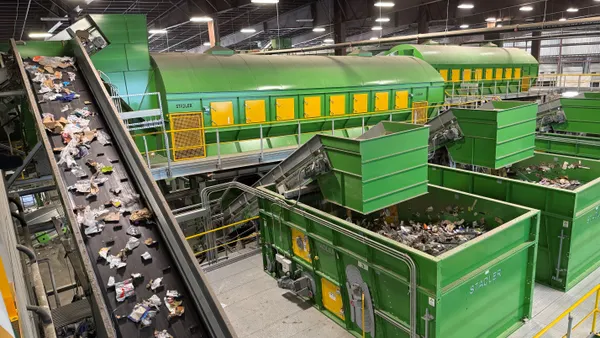Minnesota has become the fifth state in the U.S. to approve a law establishing an extended producer responsibility program for packaging. Gov. Tim Walz signed the Packaging Waste and Cost Reduction Act on Tuesday evening as part of a larger Environment and Natural Resources Budget and Policy bill.
The shared responsibility model calls for producers to pay half of recycling costs starting in 2029 and ramp up their share of costs incrementally. By 2031, producers will pay at least 90%. Producers include brands, packaging manufacturers or distributors, depending on the scenario.
Unlike earlier drafts, the final text does not specify performance targets. A future needs assessment would inform future targets around recycling, composting, waste reduction, reuse and return rates, and postconsumer recycled content.
Eureka Recycling was an early supporter of the House version of the bill. The nonprofit recycler worked with the Minnesota Zero Waste Coalition to advocate for language meant to curb problematic and unnecessary packaging, and prioritize reduction and reuse. The coalition had previously called for Minnesota’s EPR program to be a full responsibility model where producers cover 100% of costs.
Other supporters include The Recycling Partnership, Ameripen, the Flexible Packaging Association and the Consumer Brands Association. The American Forest & Paper Association called for a veto of the bill.
Eureka also noted the law’s provision requiring the creation of a curbside recyclability list and a list of material that can be recycled through alternative methods. These lists will be determined from the results of the needs assessment and public feedback, and materials that aren’t on these lists cannot be sold into the state after 2032, according to the law.
The Minnesota chapter of the National Waste & Recycling Association said it had been “100% opposed” to previous versions of the bill, but noted that major provisions were reworked in the final law to protect key parts of the state’s recycling industry.
The original bill would have “upended the operations of Minnesota recycling collectors and processors” by requiring them to contract with brand owners through the PRO, a spokesperson for the chapter said in an emailed statement. It also would have given the PRO the ability to set rates it would pay NWRA members, which could have reduced operating margins.
The chapter said it is satisfied with some aspects of the version passed into law on Tuesday. The law now allows haulers and recycling facilities to retain the ability to contract directly with local government and residential customers. It also allows recycling companies to charge a fee above the reimbursement from the PRO.
In addition, the chapter was pleased that law calls for preventing the needs assessment process from disclosing proprietary information such as tip fees.
“While there still is consternation amongst the NWRA-MN Chapter about the new law, the biggest threats to the industry were neutralized,” wrote Amber Backhaus, the chapter’s lobbyist, in a statement.
Minnesota’s decision comes as four other states are implementing their own packaging EPR laws. Oregon and California’s programs are set to begin July 1, 2025. Colorado’s implementation is set to start Jan. 1, 2026. In Maine, producer payments are slated to begin in 2026.
Notable supporters of Minnesota’s packaging EPR framework have included Ameripen, the Flexible Packaging Association and the Consumer Brands Association. Following the governor’s decision, groups including WWF and American Beverage also released supportive statements. Opponents included the American Forest & Paper Association. Opponents included the American Forest & Paper Association.
Where else packaging EPR is still in play this year
New York
The Packaging Reduction and Recycling Infrastructure Act (S4246/ A5322)
- The bills call for companies with net income over $1 million who sell or distribute certain packaging to join in a single producer responsibility organization, known in the New York bill as a “packaging reduction and recycling organization.”
- The legislation also calls for creating a recycling advisory council and would require the PRO to provide the option to purchase recycled materials from processors. It also sets plastic reduction rates and postconsumer recycled content targets, as well as recyclability requirements for certain packaging that producers sell into the state.
- The bills are currently being considered in committees. The state’s legislative session ends June 6.
New Jersey
Packaging Product Stewardship Act (A2094/S208)
- The bill lays out performance goals for all single-use packaging to be made of at least 75% “post-consumer content” by 2027; all to be “readily recyclable or compostable” by 2030; and all single-use plastic packaging “to be reduced to the maximum extent practicable” or by at least 25% by 2030.
- The Senate Environment and Energy Committee included the bill in a hearing on May 13 and discussions are ongoing. The state’s current legislative session does not end until Jan. 13, 2026.
Massachusetts
Various EPR for packaging bills technically remain active in Massachusetts, but sources don’t currently anticipate notable movement before the state ends its current legislative session in July.
Upcoming needs assessment deadlines
Maryland and Illinois have not passed EPR for packaging laws, but each state is undergoing a needs assessment that could serve as a foundation for any future EPR law. Maryland’s assessment is expected by the end of the year, while Illinois could publish its assessment later in 2026.
New York recently published the first phase of its own voluntary needs assessment.
Editor’s note: This story has been updated with additional context about Eureka Recycling’s position as well as reaction statements from other organizations.
























